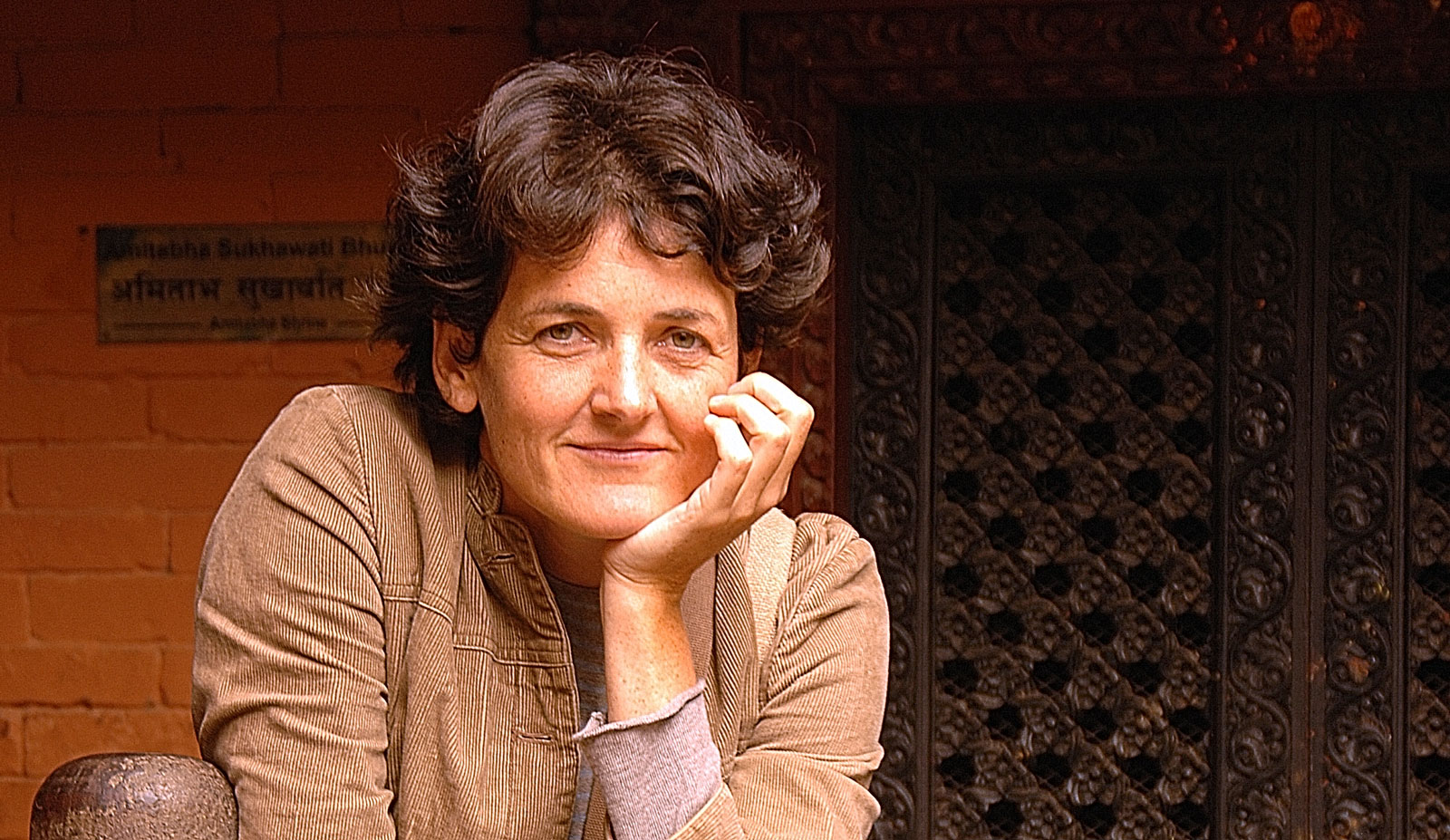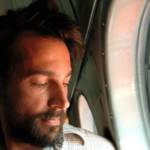Isabella Tree writes about travel for the Sunday Times, Evening Standard and the Observer. Her 1991 book, The Bird Man: The Extraordinary Story of John Gould, was reissued by Ebury Press this year. She was given an award by the Society of Authors to write her second book, Islands in the Clouds: Travels in the Highlands of New Guinea, which was short-listed for the Thomas Cook Travel Book Awards in 1997. Her third book, Sliced Iguana: Travels in Mexico, was published by Hamish Hamilton in 2001. Her writing has also appeared in Reader’s Digest, Today’s Best Non-Fiction (1998), Rough Guides Women Travel and The Best American Travel Writing 2002. She is currently at work on a novel set in Kathmandu.
How did you get started traveling?
My parents were inveterate travelers. They took my sister and me on a magical trip to Kashmir when I was nine years old and my sister was seven. We stayed in a beautiful houseboat on Lake Nagin and went trekking in great luxury (with enormous tents and a whole train of pack horses, under the auspices of a certain Sultan Wangnoo). I think the rot set in then. We did another trip as a family to Ladakh, shortly after the border opened in the 1970s, to see the Buddhist monasteries — but that was a bit tougher. My father and sister vowed never to do anything like it again, but I was totally hooked.
How did you get started writing?
I’ve always wanted to write, even as a child. My parents encouraged us to write journals on our travels — we would all be scribbling away, eyeing each other up and giggling. Then we’d wait five years to read them aloud. The journals are hilarious to read now — very irreverent and cheeky about the family, but I’m amazed how describing everything really made us open our eyes even at such a young age.
What do you consider your first “break” as a travel writer?
I’d written a couple of articles about experiences I’d had traveling — one was about the annual yam festival in the Trobriand Islands, when gangs of women pounce on unwary men and sexually assault them; the other about a dodgy massage I had (or nearly had) in Marrakech. The only magazines that had ever taken my articles were rather staid affairs, and perhaps unsurprisingly I was having trouble getting them interested. Then, on a friend’s recommendation, I sent the stories to the new features editor at the Evening Standard, who was apparently looking out for new writers. Thinking no more about it, I left on a trip to Cambodia and came back a month later to find both articles had been published and I had a job as their travel correspondent with carte blanche to go anywhere I wanted to in the world.
As a traveler and story-gatherer, what is your biggest challenge on the road?
I find the most difficult thing is to learn to let go. You can get so wrapped up in observing, thinking, making notes, and memorizing conversations that it’s easy to forget to participate. Being a writer/researcher is a very passive occupation. But as a traveler you need to dive in and experience things — which means getting into situations where you’re incapable of taking notes, like dancing the night away at a local fiesta or getting off on hallucinogenic drugs for some indigenous ritual. I have to remember to throw away my notebook from time to time.
What is your biggest challenge in the writing process?
Finding the time — and the space in my head — to do it. It’s amazing how the demands of everyday life can crowd in and take over. You have to be very dedicated and quite selfish to shut the door on everything else, unplug the telephone and settle down to work. It’s like leading a double life, or being a bigamist.
What is your biggest challenge from a business standpoint?
I’m very lucky because I’m supported by my husband financially. He’s incredibly generous and very patient, because as any writer knows, the rewards are slow in coming, especially if you’re writing a book. I’ve been lucky with editors, too. It seems once you have an article published with them, it’s relatively easy to build up a good working relationship and get commissions. A phone call is always better than an email; a quick drink always better than a phone call. But promotion seems a battle, especially where books are concerned. Publicists always think they know best, but they’re not always the best people to be touting your work or trying to get reviews.
Do you do other work to make ends meet?
I take photographs for Hutchison Picture Library, which generates a little extra income a year.
What travel authors or books might you recommend?
I think one of the best travel books ever written is The Road to Oxiana by Robert Byron, about traveling through Persia and Afghanistan in the 1930’s. It manages to be both erudite and hugely entertaining. And Colin Thubron’s writing is magical — the opening to In Siberia is one of the most haunting I can remember. Naples 44 by Norman Lewis was also a formative book, and I love Bruce Chatwin, even though he’s been largely discredited for having made most of it up.
What advice would you give to someone who is considering going into travel writing?
I don’t think there is an easy way to get into travel writing, except by writing stuff and submitting it and then staying optimistic when the rejection slips come in. It’s a fantastic occupation, but not one that is ever likely to earn you much money. Even if you end up working for one of the top newspapers and travel magazines, having all your expenses covered and a lovely fat copy fee on top, traveling is a big time-consumer — writing about travel takes much longer than writing about anything else. Syndicating articles — or re-writing them for different publications — is the only way to capitalize on the time and expense it takes to do the groundwork. Don’t trust newspapers to syndicate for you. They’re a total racket. Mostly they resell your articles in the hope that you’ll never know about it. Several times I’ve had friends say they’ve seen something of mine in The Hobart Courier or Scuba-Diving South Africa or some obscure mag I’ve never heard of. If you ever get paid, it will be a fraction of the usual fee. Far better to flog them around yourself.
What is the biggest reward of life as a travel writer?
Traveling.





